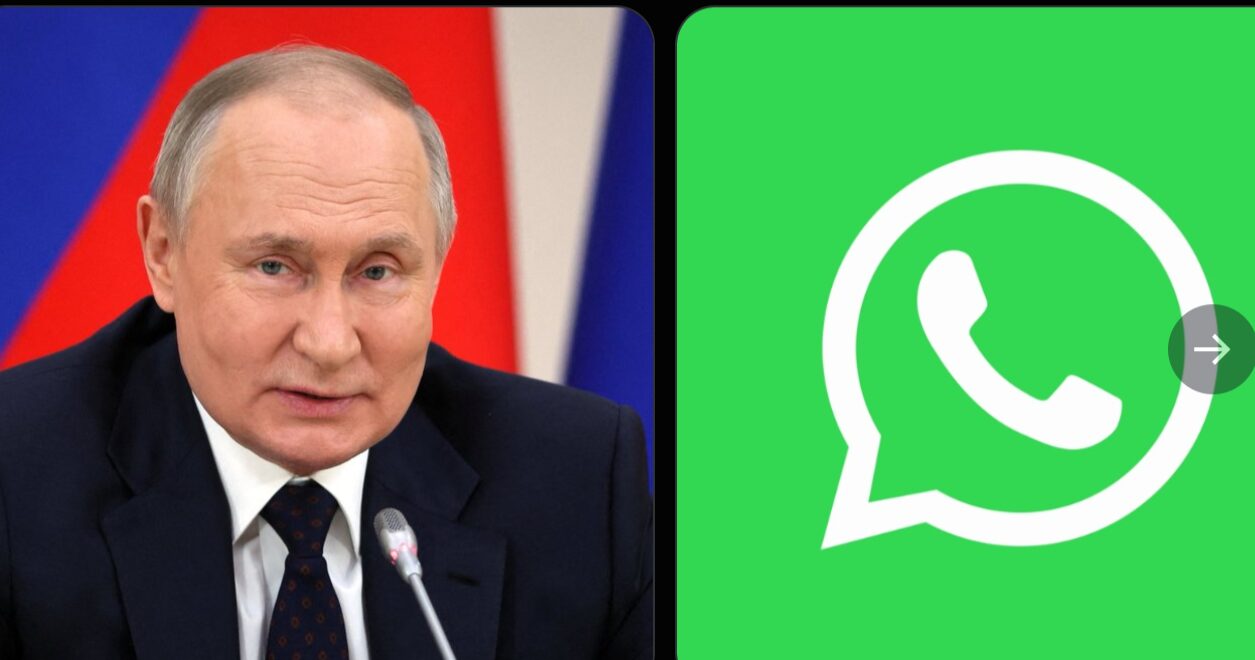RUSSIA officially RULES OUT BANNING Meta’s WhatsApp
Russia Officially Rules Out Banning Meta’s WhatsApp: A Shift in Digital Policy
In a significant move that has caught the attention of both domestic and international audiences, the Russian government has officially ruled out the possibility of banning Meta’s popular messaging app, WhatsApp. This decision comes after years of increasing scrutiny over Western tech giants operating in Russia, with WhatsApp being one of the most widely used communication platforms in the country. The announcement marks a shift in Russia’s digital policy and highlights the complex balancing act the government must perform between regulating foreign technology companies and maintaining access to essential services for its population.
The Context: Growing Tensions Between Russia and Western Tech Giants
Over the past few years, Russia has taken increasingly stringent actions against foreign tech companies, particularly those from the West, citing national security concerns, data privacy issues, and the potential spread of anti-government content. Russia has previously blocked platforms such as Facebook, Instagram, and Twitter, accusing them of failing to comply with Russian laws requiring the storage of data on Russian citizens within the country. These moves were part of a broader trend of tightening control over the internet and social media platforms, which Moscow argues are used to undermine its political stability.
However, despite these crackdowns, WhatsApp, owned by Meta (formerly Facebook), has remained largely unaffected by such measures. The app, which facilitates free text messaging, voice calls, and video calls, has millions of users in Russia, making it one of the most popular communication tools in the country. WhatsApp’s widespread use and the fact that it is perceived as a relatively neutral platform compared to other social media outlets like Facebook and Instagram, has kept it out of the crosshairs of Russian regulators—until now.
The Reversal: Why Has Russia Decided Against a WhatsApp Ban?
The decision to rule out a ban on WhatsApp comes after months of speculation regarding the future of the app in Russia. A few factors appear to have influenced this shift in policy:
- Massive Popularity and Dependence: WhatsApp’s popularity in Russia is undeniable. With over 60 million active users in the country, the app has become an essential tool for personal communication, business exchanges, and even government services. The prospect of banning WhatsApp would not only disrupt daily communication for millions of Russian citizens but also have significant economic consequences, especially for small businesses and enterprises that rely on the app for customer service and marketing.
The Russian government, which has often emphasized the importance of maintaining social stability, may have realized that banning WhatsApp would lead to widespread frustration and potentially provoke backlash from ordinary citizens. The app has become deeply integrated into the daily lives of many Russians, making its removal a contentious move.
- Diplomatic Considerations: Russia’s relationship with the West has been strained in recent years, particularly due to the ongoing geopolitical tensions surrounding the war in Ukraine and other international conflicts. However, even amidst this tension, Russia likely recognizes the importance of maintaining communication channels with the global community, including through platforms like WhatsApp.
WhatsApp, as a global messaging service, is used not only by Russian citizens but also by businesses, diplomats, and international organizations that rely on the app for communication. A ban on WhatsApp could have further isolated Russia from the international community, creating diplomatic friction that could harm Russia’s relationships with key foreign partners, including trade partners and allies.
- Focus on Other Platforms: While WhatsApp remains safe, other Meta platforms, including Facebook and Instagram, have been banned in Russia in recent years due to the company’s non-compliance with Russian data laws and its stance on content moderation. By focusing on regulating these specific platforms rather than WhatsApp, Russia may be choosing a more targeted approach. WhatsApp’s limited role in content sharing and its primary use for private communication may have made it less of a priority for Russian regulators, compared to other social media platforms that have been accused of hosting content critical of the Russian government.
- Government-Controlled Alternatives: In recent years, Russia has developed and promoted domestic alternatives to popular Western digital platforms, such as the messaging app Telegram and the social media network VKontakte. The government has encouraged Russian citizens to switch to these services as part of its broader push for digital sovereignty. However, despite the availability of these alternatives, WhatsApp continues to dominate in Russia. The government may have realized that attempting to force citizens onto local apps could lead to significant pushback and potentially harm the country’s digital economy.
The Impact of This Decision: What Does It Mean for the Future of Digital Policy in Russia?
Russia’s decision to rule out banning WhatsApp is likely to have several significant implications for the country’s digital landscape and its relationship with foreign tech companies:
- Stability in Communication: The continued availability of WhatsApp means that millions of Russian citizens can continue using the platform for both personal and professional communication without fear of service interruptions. This decision may bring a sense of stability to those who rely on WhatsApp for communication, particularly in light of the government’s previous actions against other platforms. While the Russian government has cracked down on other forms of digital communication, WhatsApp remains a vital tool for many users, especially those who have family members or business partners abroad.
- Potential Future Regulations: While WhatsApp is safe for now, the Russian government may still impose stricter regulations on the app in the future. Russia has a history of exerting pressure on foreign tech companies to comply with its laws, especially in terms of data storage and content moderation. Meta may be required to make certain concessions or adapt to Russian regulations to ensure WhatsApp’s continued operation in the country. This could include establishing local servers for data storage or agreeing to comply with Russia’s content moderation laws, which may raise concerns about freedom of expression and privacy.
- A Digital Divide: Russia’s decision to avoid banning WhatsApp may also highlight the growing digital divide between Russia and Western nations. While WhatsApp remains available, the broader digital landscape in Russia is increasingly becoming isolated from Western platforms. The Russian government’s promotion of domestic alternatives could further limit access to international services, potentially creating a more fragmented digital world where access to information and communication is restricted by government policies. This isolationist approach could have long-term consequences for Russian citizens, particularly in terms of access to global news, ideas, and social connections.
- Impact on Meta: The reversal of the ban also highlights the challenges faced by Meta and other global tech companies in navigating the increasingly complex regulatory landscape in Russia. Meta, like many other international firms, has had to adjust to the Russian government’s demands regarding data localization and content moderation. While WhatsApp remains available, Meta must remain cautious about complying with Russia’s strict digital laws, especially as tensions between the two sides continue to simmer. The company may face further challenges in balancing its commitment to user privacy and freedom of expression with the demands of the Russian government.
Conclusion: A Temporary Victory for WhatsApp Users in Russia
Russia’s decision to rule out banning Meta’s WhatsApp provides a temporary sense of relief for the millions of users in the country who rely on the app for daily communication. However, the future of WhatsApp and other Western digital platforms in Russia remains uncertain, as the government continues to shape its digital policies in response to geopolitical tensions and domestic needs.
While WhatsApp may have been spared for now, this move underscores the complex and often contradictory nature of Russia’s relationship with foreign technology companies. The Russian government is likely to continue exerting pressure on these companies to comply with its laws, and it is possible that further regulations may be imposed on WhatsApp and other platforms in the future.
For now, though, WhatsApp remains a vital communication tool in Russia, and the government’s decision to leave it untouched represents a pragmatic approach to balancing national security concerns with the practical needs of its population.

















Post Comment